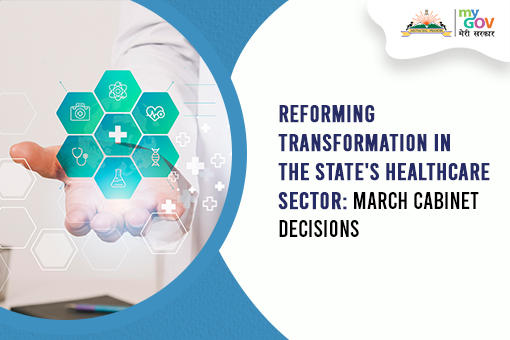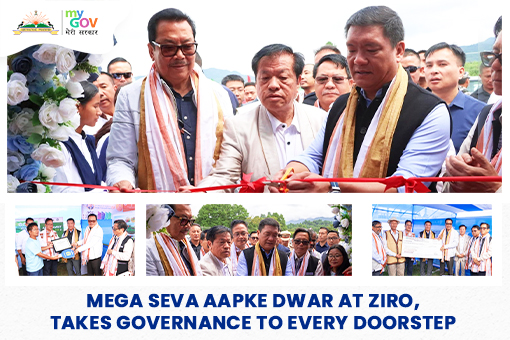iHMIS – a digital reformation in Arunachal’s healthcare industry

The 2022-2023 session has been designated as the year of e-Governance, a significant milestone in the state government of Arunachal Pradesh’s efforts to implement e-Governance initiatives. As of now, 18 of the 22 states’ significant e-Governance projects have been completed, and the remaining four are on the fast track to completion. These projects, which are tailored to cater to the citizens of the state, are expected to provide numerous benefits, making their lives more comfortable and convenient.
On 4 May 2023, the Hon’ble Chief Minister of Arunachal Pradesh, Shri Pema Khandu, launched six projects at Itanagar under the Year of e-Governance initiative which included a portal of an integrated Hospital Management Information System (iHMIS).
What is an integrated Hospital Management Information System (iHMIS)?
The government of India’s Ayushman Bharat Digital Mission aims to establish the digital infrastructure required to bridge the gap among different stakeholders in the healthcare industry through a digital highway. One of the foundations of this mission is the integrated Hospital Management Information System (iHMIS) project. This project falls under the Department of Health and Family Welfare in the state of Arunachal Pradesh. The iHMIS project aims to digitize the health care system in the state of Arunachal Pradesh, and in this blog post, we will discuss the level of digitalization achieved by the iHMIS project.
Brief:
The iHMIS project represents a significant step towards achieving digitalization in the healthcare industry in India. It is an integral part of the Ayushman Bharat Digital Mission, aimed at digitizing the entire healthcare infrastructure in the country. Funded under NHM ROP FY 2021-22 & ECRP-II, the project received support from the Centre for Development of Advanced Computing (C-DAC) and the Johns Hopkins Program for International Education in Gynaecology & Obstetrics (JHPIEGO). The project is being executed by Kenge Construction Company and B4B Solutions Pvt. Ltd in a joint venture under the Department of Health and Family Welfare.
Before April 2022, the healthcare system in Arunachal Pradesh suffered from low computerization, negligible IT infrastructure, and poor internet connectivity in most health centcentresck then, health centres used to rely on the manual registration of prescriptions. However, as of May 2023, significant progress has been made towards achieving digitalization in the healthcare industry in Arunachal Pradesh.
Current Status:
As of May 2023, the iHMIS portal is a live URL, accessible at https://hmisar.dcservices.in. The project has been implemented state-wide in all DHs, Community Health Centres, and Primary Health Centres. The implementation was initiated on 15th April 2022 from TRIHMS Naharlagun and BPGH Pasighat after successful bidding on the GeM portal. The iHMIS portal has been activated at all district hospitals and community health centres, with 25 district hospital ORS/emergency/billing/doctors’ modules currently active. Additionally, 40 CHC/UPHC units are active on ORS/emergency/billing/doctors’ modules.
All functional PHCs (150) are expected to be completed in online and offline modes by 20th February 2024. More IT networking and desktops/laptops are being provisioned, with 726 laptops for doctors under ECRP-II. Two telemedicine hubs have been created at TRIHMS and BPGH, with 46 health ATM kiosks installed in spokes. Moreover, 308 spokes have been registered on e-sanjeevani.in, the HWC portal with 226 SC, 78 PHC, and 4 UPHC currently active. To support the project, 182 IT helpdesk support has been recruited on a contractual basis by the executing agency. Currently, 270 health facilities are registered (HFR), 834 health professionals are registered (HPR), and 2,20,094 ABHA (Ayushman Bharat Health Identification Number) accounts have been created.
All in all, the iHMIS project is expected to play a significant role in digitalizing the healthcare industry in India. In Arunachal Pradesh, the project has made significant strides towards digitizing the healthcare infrastructure in the state. With the integration of ABHA, the project is expected to make medical records more accessible to healthcare professionals and service providers across the country. The iHMIS project is a significant step towards achieving a fully digital healthcare infrastructure capable of providing quality healthcare services to all citizens.





